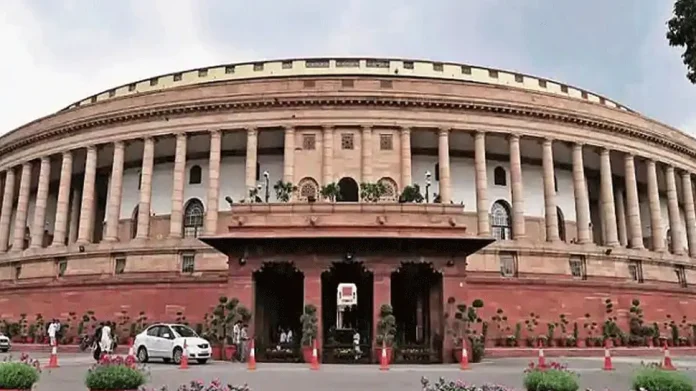By Swapnarka Arnan
India’s government is certainly one of the most unique systems in the world, having taken elements from many different countries such as parliamentary form of government from the UK, directive principles of state policy from Ireland, etc.
Another country that has deeply influenced India’s system of government is the USA, from which India borrowed concepts such as Fundamental Rights and Independence of the Judiciary. But there is another concept which India should have borrowed from the American system of government which would have led to more equity and prosperity– that being the American system of representation of states in the upper house of the Legislature.
In India’s upper house, the Rajya Sabha, which represents the states, the number of seats a state has reflects the population of the state. Thus Uttar Pradesh, which has a large population, has 31 seats in the Rajya Sabha, while states with smaller populations such as Meghalaya have only one.
Meanwhile, in the US Senate, every state, regardless of population, gets two seats.
So why do I suggest that India should model the Rajya Sabha after the US Senate in this regard? Is it not good that the seats in the Rajya Sabha reflect the population of each state?
Firstly, we should consider the fact that in the Lok Sabha, the number of constituencies each state has already reflects their population, which is why Uttar Pradesh has 80 seats to reflect its large population while Meghalaya with a much smaller population has two seats.
So in the Lok Sabha the people of Maharashtra, Gujarat and other states with large populations already have a much stronger voice. And in the Lok Sabha they should, because the Lok Sabha represents the voices of the Indian people, thus it is justified for the states with a larger population to have more seats as it needs to ensure that the voices of the many people of these states are heard.
However when it comes to the Rajya Sabha I believe it would be better for it to have equal representation for all the states regardless of their population.
This is because under the current system, for a bill to pass it only needs to gain support of the people who live in states with larger population, because in both the Lok Sabha and Rajya Sabha these states hold more power and without their support it would be very difficult for any bill to become law.
Meanwhile if a law is extremely unpopular in places such as the North East of India, which has states with less population it can still pass because these states do not have as much power in both the houses of parliament. This can lead to the people of these states feeling like their concerns are not being addressed properly.
India is a diverse country and its people are from different states which have different cultures, standard of living, lifestyle, economic and geographic conditions, popular opinions and thus have different concerns and face different issues. A law or policy might have good effects in one state, but might have disastrous effects in another.
The current system gives too much power to states with large populations, and in a diverse country like India balance is very necessary.
But doesn’t the power of the state government ensure that the states are able to address issues they face? It certainly does. However, it should be noted that Parliament can make laws reserved for states with the approval of the Rajya Sabha with a two-third majority.
Furthermore, even laws dealing with subjects on the Union list and Concurrent list may be popular amongst some states and unpopular amongst others. For example, a law regarding immigration maybe be popular in certain places as it can lead to less labour shortage but it may be unpopular in some places such as the North East as the indigenous communities there may be very concerned about the preservation of their culture and the problems of deforestation or overpopulation.
Also, by having equal representation in the Rajya Sabha, the chances of politicians or parties ignoring small population centres will be less, as doing so will lead to them having less power in the Upper House and affect their ability to pass bills at the national level. This ensures that politicians do not focus just on large cities in the North but also in other places.
For this reason, the Lok Sabha seats should reflect the population of each state while in the Rajya Sabha there should be equal representation. This will ensure that every law that is passed is not only popular amongst the majority of Indian citizens, but also amongst the many states of India and the many different ethnicities/communities.
This will ensure that every law is beneficial for all, and make sure that no one voice is ignored, whether it’s the people of Maharashtra or Sikkim.
Democracy should be a system where everyone’s concerns are addressed, and everyone has an equal voice, including smaller states and their people.
India has always uplifted the disadvantaged and marginalised groups whether through affirmative action in education or reservations in government; India has been a land of equality, freedom and progress.
India should thus have equal representation for all states in the Rajya Sabha, as this system will not only lead to only very popular laws being passed, but will even minimise chances of laws that may have a negative impact from being passed. As former US President Calvin Coolidge said, “It is much more important to kill bad bills than to pass good ones”.
(The author is a freelance writer based in Assam, India. He writes about political, economic and geopolitical issues.)


